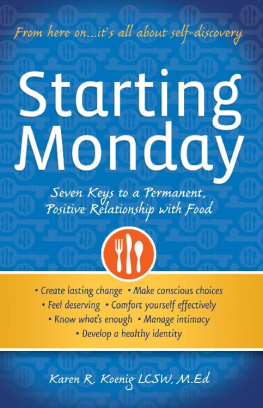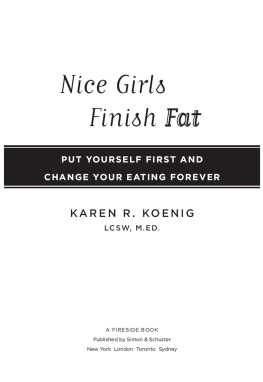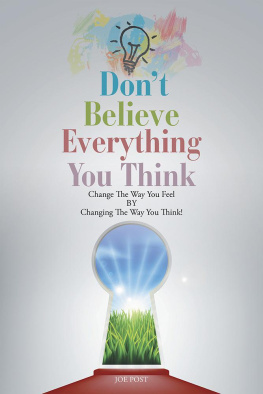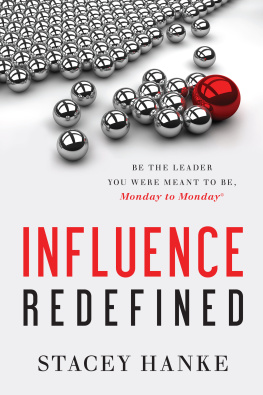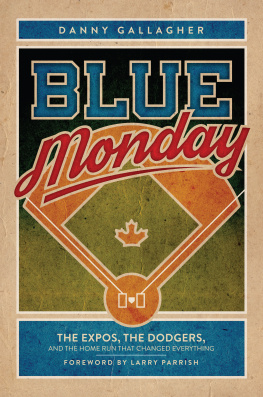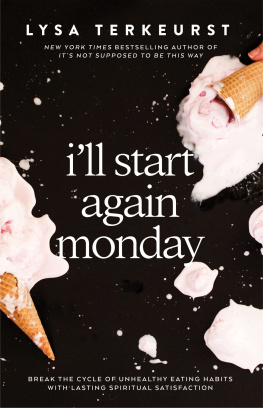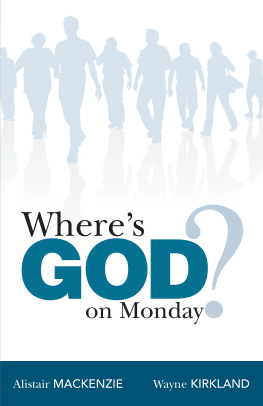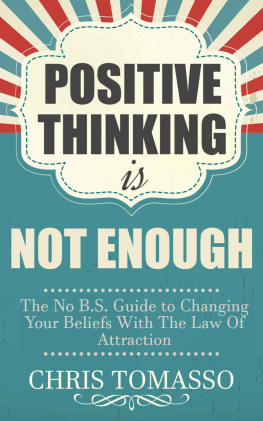About the Author
Karen R. Koenig, LCSW, M.Ed, is a psychotherapist, international eating coach, national educator, and popular author of five books on eating and weight. She is an expert on the psychology of eatingthe how and why, not the what of itand is best known for her non-diet, normal eating approach to making peace with food. She has worked in the field of eating disorders for 30 years.
Her books include: The Rules of Normal Eating (2005) and The Food & Feelings Workbook (2007) published by Grze Books, as well as What Every Therapist Needs to Know about Treating Eating and Weight Issues (Norton Professional Books, 2008), and Nice Girls Finish Fat (Simon and Schuster, 2009). Among three of her books, there are 10 foreign language translations.
Ms. Koenig practices in Sarasota, Florida, moderates an online Food and Feelings message board, and blogs at www.EatingDisordersBlogs.com/healthy.
Her website is www.karenkoenig.com.
ACKNOWLEDGEMENTS
Many thanks to Janice M. Pieroni, my agent, for believing in the ideas behind this book throughout its several incarnations. And likewise to my publishers at Grze Books, Leigh and Lindsey Cohn, for making this project so much fun to do, and to Leigh in particular for helping me keep it simple.


D ont you just hate the way were told what a snap it is to get healthy? Words like easy, fast, and simple make you think you can click a switch and, presto, a new, fit normal eating you. The truth is that were fed a constant diet of drivel about how to transform our eating and our bodies, and are convinced our character must be flawed and our motivation sorely lacking if we cant follow a deprivational daily calorie plan for the rest of our lives.
Did you know that the diet industry spends about 60 billion dollars annually to convince us that weight loss plans, products, and programs work?
The diet industry knows that if it can convince us not to trust ourselves around food and get us to believe that we have to be thin to be happy, healthy, and fit, it can keep us hooked going from diet plan to product to program forever. The easier they make it sound, the more likely we are to buy into whatever theyre selling.
Studies confirm what our bodies have been telling us all along: diets dont work long term. In fact, 95% of diets fail and most dieters will regain their lost weight in 1-5 years. Tell me, if I offered you an investment opportunity, but warned that your chance of success was five percent, would you whip out your checkbook? I think not. But thats what youve been brainwashed to do when it comes to jumping on the diet bandwagon.
Why cant I just close my eyes and will myself to be a healthy eater?
Before moving on to the premise of this bookthat unrecognized fears and mixed feelings can prevent you from reaching and sustaining your eating goalslet me set out what I believe to be true about body weight based on scientific research. In a seminal study on identical and fraternal twins cited in Rethinking Thin by New York Times science writer Gina Kolata, 70% of the variations in peoples weight may be accounted for by inheritance, which is also called genetic loading. In real terms, this statistic is saying that we have some, but not total, control over the number on the scale. Due to inherited metabolism (more about this in a moment), our weight naturally fluctuates within a range, and it is very hard, if not impossible, to maintain a weight below the lowest point in that range.
So, what can we control regarding food and what is beyond our ability? Obviously, height and bone structure are pretty well fixed (except with surgery). Metabolism is also more or less set from birth. You may have had a hunch this is true, but who could blame you for shying away from truth in this fat phobic, thin-obsessed culture? Were all unique individuals with differing abilities, temperaments, experiences, and genetics.
Food for Thought
Describe your current relationship with food and your body. What have you tried to improve your eating? How has it worked or not worked?
One more point before we move on to the psychological reasons that keep you wrestling with food. Some folks with a host of unhealthy habits are able to transform their eating with moderate effort and sustain their new behaviors for life. Heres an example of how that might happen. Lets say a person used to eat only processed, convenience foods, and gave little attention to what and how much she was eating. However, after learning about nutrition and portion monitoring, she became more conscious of mindless eating and began making healthier choices. She could make these changes based on the educational part of the word psycho-educational: She took new knowledge and was able to run with it without internal conflicts holding her back.
She didnt consider being told to eat nutritiously as a challenge to her autonomy, but was grateful for new information. When she refused sweets and treats, she didnt feel deprived or victimized, but felt proud to be making wiser choices. She didnt feel annoyed at having to plan ahead for her food needs, depressed at cooking for herself, or the urge to use food when she was stressed or distressed.
You and I know painfully well that you are not her. Your reaction to and relationship with food is far more prickly and conflicted. Youre not really comfortable in your body whether its thin or fat, and you cant get food off your mind try as you might. You resist change based on the psycho part of the word psycho-educational. And, no, in this instance psycho doesnt mean crazy; its part of the word psycho-logical!
People who succeed at changing their eating habits without a lot of effort do not need to read this book. You do. Most assuredly, they have other problems that you dont. Thats life.
Why cant I just say no to food?
Time to face it: There is no quick fix to mending our errant eating ways. Thats because eating is an enormously complex and complicated subject. Scientists are doing their best to understand how what we eat and weigh are affected by such factors as metabolism, heredity, hormones, stress, exercise, cultural norms, anxiety, addictions, food sensitivities, trauma, sleep, medications, medical problems, and activity level (whew!). If eating right were as easy as just say no, these folks wouldnt be busting their brains looking for answers.
The science of weight loss is relatively new and there is, of course, a good deal of disagreement about theories and conclusions. Moreover, for every question answered, a slew of new ones arise that demand further study. More proof that the subject of eating and weight is anything but simple! Here are some reasons why:
Metabolism
Metabolism is the process by which we turn food into energy, and it is measured in calories. Technically, a calorie is the quantity of heat necessary to raise by 1 C the temperature of 1 gram of water. The energy produced from calories is what keeps our bodies running and in good repair. Differences in metabolism are due to, among other things, variations in individual physiology that influence how much energy an individual consumes, expends, and stores as fat. These factors are primarily genetically determined but can be altered, to some degree.
Readers of my books know that I teach only the non-diet approach to eating because chronic calorie cutting plays a major role in disregulating our metabolism, sometimes for life. Many of us start dieting in our teens or earlier, and end up eating in ways that can indelibly alter normal biological regulation of appetite and food consumption. Moreover, diets appear to be the gateway activity leading to eating conditions such as anorexia nervosa, bulimia nervosa, and binge eating disorder.
Next page
